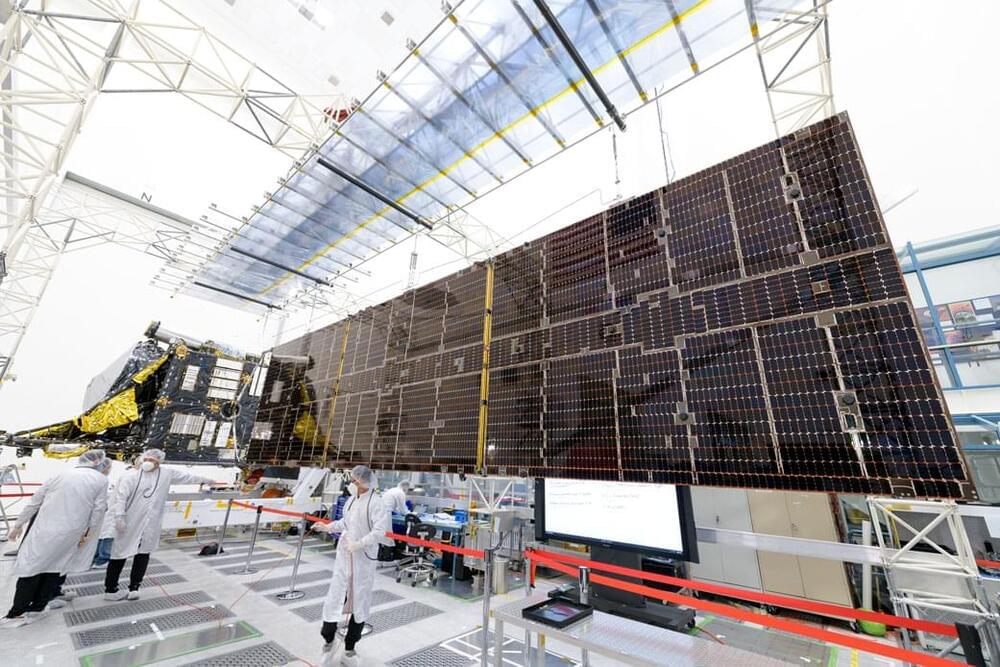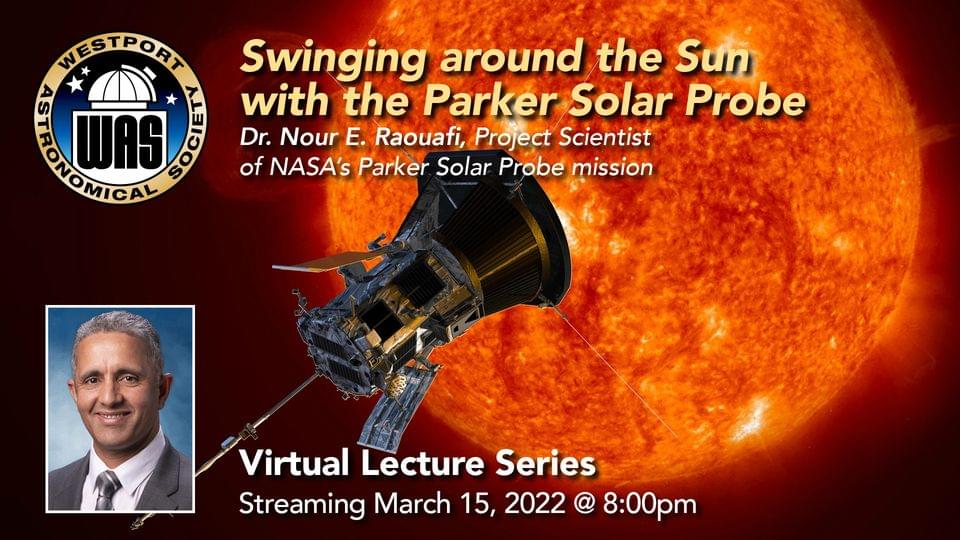
Category: space – Page 584

Sublime New Hubble Image Reveals a Thrilling Exchange Between Two Galaxies
The ongoing interaction between two galaxies 320 million light-years away has been captured in a gorgeous Hubble image.
They’re collectively known as Arp 282 in Halton Arp’s Atlas of Peculiar Galaxies, and they consist of a large barred spiral galaxy named NGC 169, about 140,000 light-years across, and a much smaller polar-ring galaxy named IC 1,559, which is about 40,000 light-years across.
These two galaxies have drawn close enough together that they’re exchanging material. That’s not unusual: Although space is vast and mostly empty, galaxies are gravitationally drawn together, perhaps channeled along strands of the invisible cosmic web that stretches across and plays a vital role in shaping the Universe.


Astronomers spot tantalizing large molecule near star with ‘comet factory’
The molecule is a precursor to organic molecules, which can be associated with life.
Astronomers spotted the largest molecule yet found in a planet-forming disk, which they say will tell us more about the origin of life.
The molecule, dimethyl, is a precursor to organic molecules like methane that in some cases may be indicative of life. The team also may have found methyl formate, which is deemed a “building block” to constructing even larger organic molecules.
Risky Asteroid to Reach Earth by 2023 But Poses No Harm, Experts Say
Earlier this year, a space rock was estimated to hit the planet in 2023. Read on to know how this prediction changed, and how astronomers carry out studies for this type of event.


Can you spare a minute to help this campaign?
Statement from members of the earth and space science international community.
We are Earth and space scientists, science communicators, and educators dedicated to the discovery of and solutions to societal challenges. We issue this joint statement to call on world governments and global leaders to do everything possible to expedite the end to the brutal Russian assault on Ukraine. We welcome other professional scientific communities to join our appeal.
1. The Earth and Space Community is an ecosystem of researchers working together and supporting each other. At this moment, our colleagues in Ukraine are being shelled with missiles and many have been forced to escape with their families from the war zone. We salute “Science for Ukraine” grassroots efforts and urge world governments to support Ukrainian students and science professionals.
Jacques Cousteau’s grandson is building a network of ocean floor research stations
Fabien Cousteau has a vision for how humans can live and work in the ocean. He imagines that long-term stays under the waves could be enabled through the construction of underwater habitats, which would look and feel like houses, as opposed to just sealed, submarine-like bubbles.
These habitats would have a galley, kitchen, workspace, and sleeping quarters, he describes. And of course, there would be windows, or viewports, to the outside world, and a front door in the form of a moon pool that will actually be on the bottom of the house. This would allow easy access into and out of the facility.
The project, called Proteus, would be a marine analog to the International Space Station, and would primarily accommodate aquanauts, the equivalent of an astronaut in the ocean. It’s an idea that has been bubbling for some time now. But it could start taking shape relatively soon. Proteus Ocean Group, a private company which would operate and run Proteus, has recently signed an engineering, procurement, and construction (EPC) contract with a firm that has expertise in creating hyperbaric and pressure vessels in the ocean environment. Much of what Proteus is doing in terms of the technology they’re exploring is similar to space technology.


Seldom Has Politics Superseded the Pursuit of Scientific Discovery and Sharing
Even when politicians and countries have sparred, pursuing scientific truths has been a shared experience across academia and political boundaries. But not now with Russia’s invasion of Ukraine.
In response to the invasion of Ukraine programs of cooperation between Europe, North Americas, and Russia in space and research are ending.